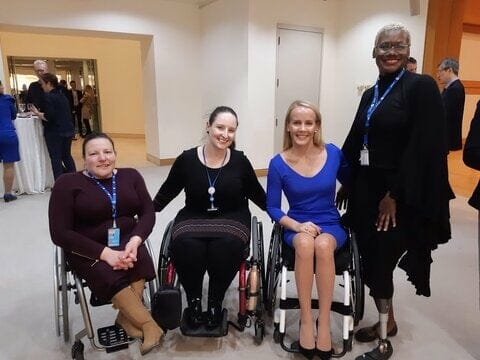TOKYO: The World Health Organization (WHO) and the International Paralympic Committee (IPC) have agreed to work together to help persons with disabilities gain access to quality rehabilitation and assistive technologies, which in turn would promote diversity and equity in health and sports.
In order to achieve this objective, the World Health Organization (WHO) and the International Paralympic Committee (IPC) have signed an agreement in Tokyo to work together to foster diversity and equity through global initiatives promoting health and sport for everybody, everywhere.
The two partners will collaborate to improve global access to quality rehabilitation and assistive technology and mitigate existing inequalities concerning access to these life-changing services, media reports said.
Both stressed the access to these services as a prerequisite for equal opportunities and participation in sports for persons with disabilities, including for Paralympians and Para athletes.
“Sport and health are natural allies, with mutually reinforcing benefits,” said Dr Tedros Adhanom Ghebreyesus, WHO Director-General.
“More than that, the Paralympic Games are an inspiring statement of what persons with disabilities can achieve. We hope this partnership between WHO and IPC will provide a platform for more persons with disabilities to participate in sport, but also for demonstrating why universal health coverage is so important, by ensuring all persons have the care and technologies they need to fulfill their potential,” he said.
IPC president Andrew Parsons said the partnership will greatly benefit society, as sports are a tremendous tool for ensuring persons lead active and healthy lifestyles.
“The IPC’s partnership with the WHO goes beyond promoting physical and healthy lifestyles and will also focus on highlighting the role assistive technology plays in the creation of an inclusive world, especially for the over 1 billion persons with disabilities,” he said.
The Paralympic Games will begin on 24 August and conclude on 5 September.
Disability is a global public health issue but with a higher prevalence in lower-income countries with even less access to health care and assistive technology. The World Health Organization estimates about 15 percent of the world’s population lives with a disability – and this number is growing due to demographic changes including population aging and the global increase in chronic health conditions. Only one in two persons with disabilities can afford health care, including rehabilitation services, and one in 10 have access to life-changing assistive technology.
The COVID-19 pandemic has exposed persons with disabilities to increased risks of contracting COVID-19 and having poorer health, as health information and care have not been provided in ways easily accessible to them.
IPC, WHO to promote diversity and equity in health and sports







